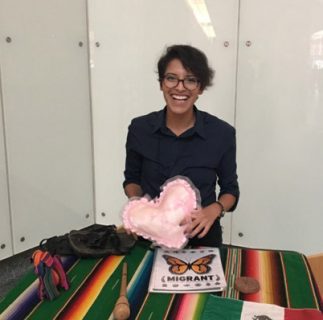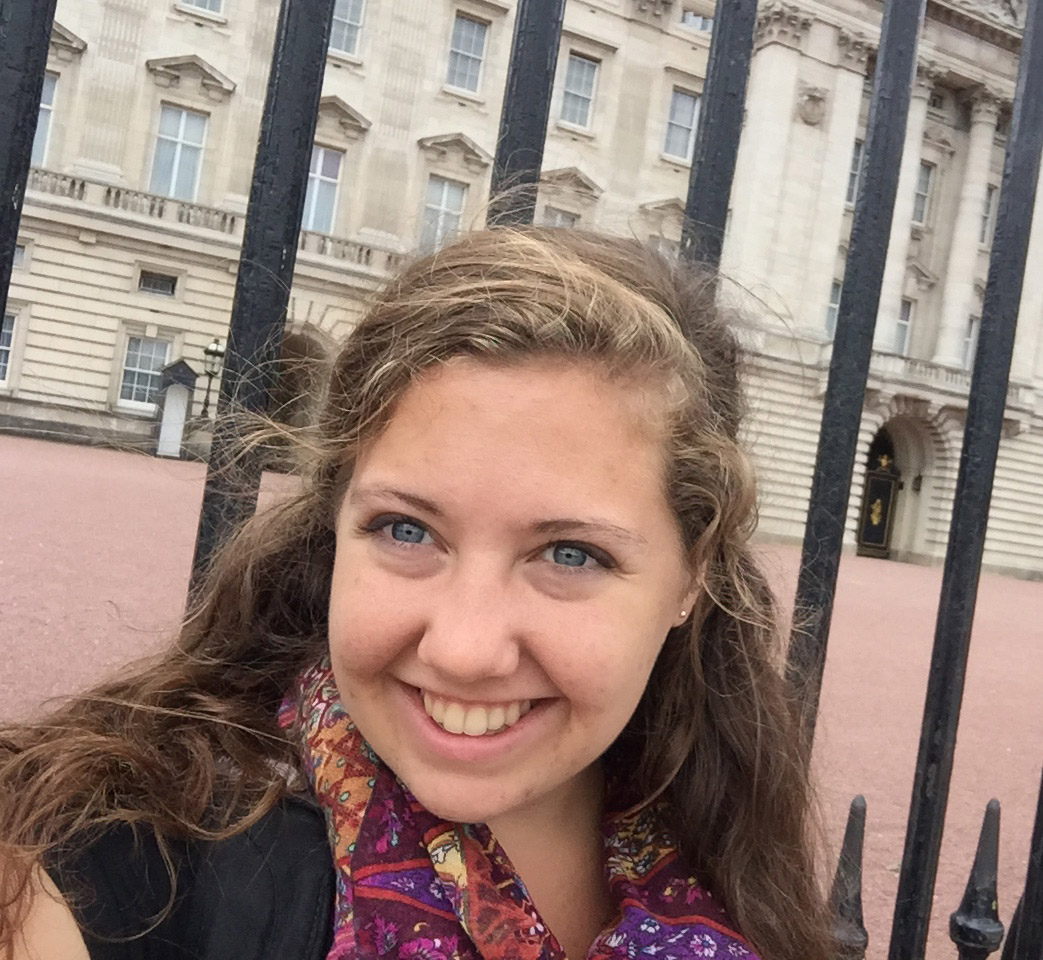Jayhawks share internship advice
Students are increasingly adding an internship to their College experience to boost their career prospects after graduation. According to a recent article in the New York Times, "internships have gone from nice-to-have-on-a-résumé to absolutely critical," because employers now hire about 50 percent of their interns after graduation. Internships can be a direct route to a job at a company or organization. They can also let you try out a career, build a network, establish mentors outside of College, earn college credit, acquire new skills, and gain vital experience in a professional environment. But how do you go about getting involved in an internship? We sat down with five Jayhawks who've recently interned in different industries in the US and beyond to share their advice. From the Smithsonian museum, to the U.S. government, to a scientific research company in India, to a global advocacy organisation, to a newspaper in Germany, these students interned in a variety of industries and gained skills that'll set them apart in the future. Here they offer their advice on how to get started and find the internship that's right for you.
Paid Internships Exist, Start Looking for Opportunities Early
 Sandra Sanchez, intern at the Smithsonian Museum of American History.Majors in history and Chinese language & literature, minor in indigenous studies "It is imperative to start looking for possible opportunities as early as possible so that you can start preparing what criteria you might need (whether it is a class, language experience, etc.) and so you can begin planning financially (applying for scholarships or outside aid if needed.)," she said. "Think of different career paths you might be interested in and look for internships in those fields. Your internship doesn’t have to be what you’re going to do for the rest of your life and often having experience through an internship will help you decide whether or not you really want to work in that field." "I had signed up for the mailing list from the Smithsonian Office of Fellowships & Internships quite a while ago, and was waiting for an opportunity for a paid internship to open up. One day, I opened my inbox and I saw there were applications open for the Minority Awards Program which would fund any internship across the Smithsonian Institution. From there, I researched with whom and where I wanted to work at and then applied." Learn more about Sandra's internship here.
Sandra Sanchez, intern at the Smithsonian Museum of American History.Majors in history and Chinese language & literature, minor in indigenous studies "It is imperative to start looking for possible opportunities as early as possible so that you can start preparing what criteria you might need (whether it is a class, language experience, etc.) and so you can begin planning financially (applying for scholarships or outside aid if needed.)," she said. "Think of different career paths you might be interested in and look for internships in those fields. Your internship doesn’t have to be what you’re going to do for the rest of your life and often having experience through an internship will help you decide whether or not you really want to work in that field." "I had signed up for the mailing list from the Smithsonian Office of Fellowships & Internships quite a while ago, and was waiting for an opportunity for a paid internship to open up. One day, I opened my inbox and I saw there were applications open for the Minority Awards Program which would fund any internship across the Smithsonian Institution. From there, I researched with whom and where I wanted to work at and then applied." Learn more about Sandra's internship here.
Research the Organizations that Interest You
 Trent Allen, intern at the Office of Postsecondary Education Intern, United States Department of EducationMajors in Political Science & Economics "I decided early on in the fall semester leading up to my internship that if I was going to learn about education policy implementation there would be nowhere better to work than the Department of Education, so I went on their website, found their internship page, and just applied!" Trent's internship is part of KU’s Washington, D.C. internship program, which helps students find an internship if they are unsure of the path they want to take. KU also has an agreement with an apartment complex in the D.C. area to provide housing which saves interns a lot of time and money; and there are also a few scholarships given out by KU to subsidize some of the costs. Learn more about Trent's internship, here.
Trent Allen, intern at the Office of Postsecondary Education Intern, United States Department of EducationMajors in Political Science & Economics "I decided early on in the fall semester leading up to my internship that if I was going to learn about education policy implementation there would be nowhere better to work than the Department of Education, so I went on their website, found their internship page, and just applied!" Trent's internship is part of KU’s Washington, D.C. internship program, which helps students find an internship if they are unsure of the path they want to take. KU also has an agreement with an apartment complex in the D.C. area to provide housing which saves interns a lot of time and money; and there are also a few scholarships given out by KU to subsidize some of the costs. Learn more about Trent's internship, here.
Keep Open to Opportunities, Reach out to Your KU Network
 Kathleen Meeds, intern at a newspaper called the Ostholsteiner Anzeiger in Eutin, Germany. Majors in English with German and journalism minors "Jimmy Morrison came into my German class last fall and spoke about interning in Eutin. He is a part of the German department and coordinates internships to Eutin. He said he could work with people studying in different areas, as long as they were also learning German." Sandra Sanchez adds that it is important to start asking around. "Ask your professors, your mentors, advisors—anyone! There are so many great opportunities that you may or may not stumble upon alone so if you expand your network then you’ll have a wider range of options. Learn more about Kathleen's internship, here.
Kathleen Meeds, intern at a newspaper called the Ostholsteiner Anzeiger in Eutin, Germany. Majors in English with German and journalism minors "Jimmy Morrison came into my German class last fall and spoke about interning in Eutin. He is a part of the German department and coordinates internships to Eutin. He said he could work with people studying in different areas, as long as they were also learning German." Sandra Sanchez adds that it is important to start asking around. "Ask your professors, your mentors, advisors—anyone! There are so many great opportunities that you may or may not stumble upon alone so if you expand your network then you’ll have a wider range of options. Learn more about Kathleen's internship, here.
Prepare to Live Somewhere New, Embrace Difference
 Evin Smith, intern at the Center for Cellular and Molecular Platforms, Bangalore, IndiaMajors in Economics and Finance Often an internship will be in a different city, state or country, maybe even somewhere you've never been. Before you go, spend time researching the place you'll be living and working in advance. "India is a great country, but it is very different from the US and will take some time to get used to both physically and culturally, it takes time and patience but if you throw yourself at India and are willing to learn, India will be a phenomenal experience," she said. "Living and working in India has been such a unique experience. Every day, I'm learning about different foods and customs. During my internship, I learned to adapt to and appreciate cultural differences. India is such a diverse country that has a long and rich history. I enjoyed learning about India from the locals and sampling all the amazing food!" Learn more about Evin's internship, here.
Evin Smith, intern at the Center for Cellular and Molecular Platforms, Bangalore, IndiaMajors in Economics and Finance Often an internship will be in a different city, state or country, maybe even somewhere you've never been. Before you go, spend time researching the place you'll be living and working in advance. "India is a great country, but it is very different from the US and will take some time to get used to both physically and culturally, it takes time and patience but if you throw yourself at India and are willing to learn, India will be a phenomenal experience," she said. "Living and working in India has been such a unique experience. Every day, I'm learning about different foods and customs. During my internship, I learned to adapt to and appreciate cultural differences. India is such a diverse country that has a long and rich history. I enjoyed learning about India from the locals and sampling all the amazing food!" Learn more about Evin's internship, here.
Do Your Research, Apply
 Elizabeth Orr, events intern at the International Relations Council, Kansas City. Majors in global & international studies and French, minors in economics "I would advise any student considering an internship to apply! Do some research about the organization and find what about it suits your interests and abilities. I found out about this internship and the International Relations Council through KU’s Global & International Studies Program. Through further research, I found the specific internship for which I was best suited. There is nothing to lose from applying, and everything to gain." Learn more about Elizabeth's internship here.
Elizabeth Orr, events intern at the International Relations Council, Kansas City. Majors in global & international studies and French, minors in economics "I would advise any student considering an internship to apply! Do some research about the organization and find what about it suits your interests and abilities. I found out about this internship and the International Relations Council through KU’s Global & International Studies Program. Through further research, I found the specific internship for which I was best suited. There is nothing to lose from applying, and everything to gain." Learn more about Elizabeth's internship here.